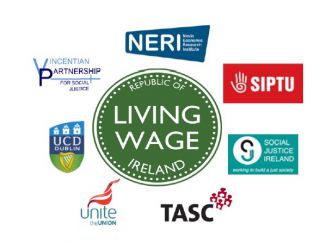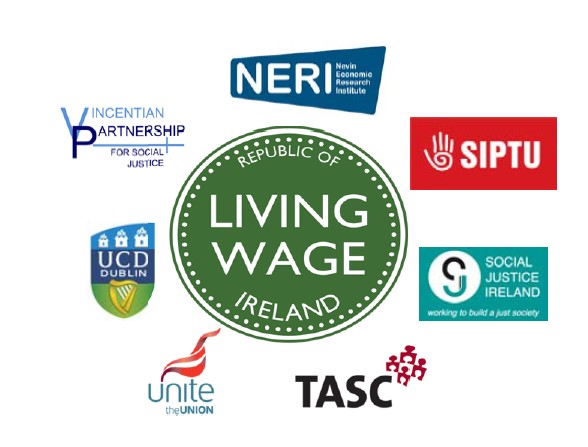Rising rents push Living Wage to €11.90 per hour


The Living Wage for 2018 has been set at €11.90 per hour by the Living Wage Technical Group, of which Social Justice Ireland is a member. The new rate represents an increase of 20c per hour over the 2017 rate. The change is determined by changes in taxation and the cost of living.
As with the increase in the Living Wage last year (which was also 20c over the 2016 rate), the ongoing increases in accommodation costs have been the main driver of this year's increase. Ireland's housing crisis and the associated increases in private sector rents and purchase costs, not to mention the lengthy social housing waiting lists, are the major drivers of the rising cost of living, with rent now accounting for half of minimum living costs in Dublin.
Aside from housing, the overall cost of the minimum essential needs of a full-time single worker fell in the last year. The cost of food, clothing, health insurance and transport all fell in 2018. While home energy costs increased notably, this was not enough to offset the reduction in costs in other areas of essential expenditure.
However, these savings have been wiped out by rising accommodation costs. The overall cost of a socially acceptable minimum standard of living increased by an average of 2.5 per cent for a single full-time worker without dependents over the last year.
If housing costs had not increased to such a degree, the Living Wage rate would not have increased in 2018. This highlights again the urgency of the need to tackle Ireland's housing crisis.
The Living Wage for the Republic of Ireland was established in 2014, and is updated in July of each year. It is part of a growing international trend to establish an evidence-based hourly income that a full-time worker needs so that they can experience a socially acceptable minimum standard of living. The 2018 figure is based on the concept that work should provide an adequate income to enable individuals to afford a socially acceptable standard of living. It assumes a single adult works 39 hours per week and is derived from the Consensual Budget Standards research methodology which establishes the cost of a Minimum Essential Standard of Living in Ireland. A Living Wage provides for needs not wants.
More information on the 2018 Living Wage can be accessed here.